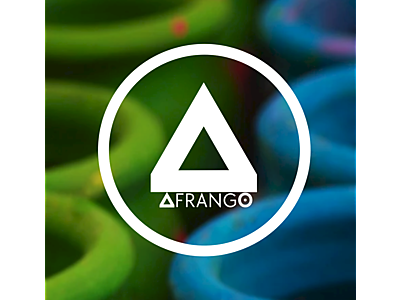South Africa needs a sounder mineral beneficiation policy to tackle the challenges the country faces, particularly rising unemployment. Its beneficiation policy is not very demanding and isn’t pursued with any vigour. For example, South Africa should be pursuing trade cooperation with Brazil, Russia, India and China. Together with South Africa they make up the BRICS grouping, which was formed in 2010 with the purpose of pursuing economic development.
View Full Post and Comments
Whilst many stories coming from the Democratic Republic of Congo (DRC) in recent years have focussed on the political issues that country has faced, many are now seeing that the case for investing in the country is stronger than ever. The DRC contains significant supplies of a wide range of mineral resources, and is currently a major supplier of diamonds, copper, cobalt, gold, tantalum and tin. In advance of the mining week event in the DRC in June, Elisee Isheloke takes a close look at the investment case for the DRC.
View Full Post and Comments
Reviewing Shame Mugova’s and Paul R. Sachs’ (eds.) Book:
Opportunities and Pitfalls of Corporate Social Responsibility: the Marange Diamond Mines Case Study
Books are a store of knowledge, a vehicle of science and it is not rare to find many which fit the phrase ‘food for thought’, but this book edited by Shame Mugova and Paul R. Sachs is not only illuminating, thought-capturing and rich in context but it transcends the average expectation of academic publications. It’s hard to critique such a great paperback but to perhaps realise that it seldom addresses realities of other countries.
View Full Post and Comments
Abstract
As the use of languages play a critical role in economic activities within the globalized countries’ economies, there are growing perspectives and interests in the relationship between languages and the volume of trade among trading partners. This study looks at one such perspective in the lenses of gravity model, a theory of international trade, that measures the impact of language on trade or Foreign Direct Investment (FDI). The study explores challenges facing Brazil, Russia, India, China and South Africa (BRICS) in respect to the impact of language diversity in their trading matters, and the potential of multilingualism in spurting trade within this trading bloc.
The study employs a qualitative approach with the use of exploratory design. The data is based on secondary sources stemming from reports, research, books to policy papers. This study findings show that various trading blocs such as European Union (EU), the Common Market for Eastern and Southern Africa (COMESA), the West Africa’s Economic Community of West African States (ECOWAS), with some members of BRICS such as South Africa and China as having adopted multilingualism as a strategy of addressing the language factor in their bilateral trading matters. This study proposes the promotion of multilingualism as a way of mitigating the impact of language barrier in international trade among the BRICS and beyond.
Keywords: Economics of language, Gravity model, Bilateral-trade, Economic
View Full Post and Comments
1. INTRODUCTION
Nigeria has huge geo-resources including gas and is the 10th largest oil reserves in the world (PWC., 2019: 19). It is the first economy of Africa (the most populated country in the continent), but this does not mean the people are out of poverty. The recent violent protests speak volume about the prevailing situation of economic inequality in that country. The petroleum industry makes an insignificant contribution to the economy of Nigeria (+- 10% of the GDP) based on comparisons with other nations. Compared to other petrol states or oil-driven economy such as
3
Kuweit (50% of the GDP), Saudi Arabia (42% of the GDP), and UAE (70%) one can say that the impact of oil activities in Nigeria is insignificant (Omoregie, 2016; Uwakonye, Osho and Anucha, 2006; PWC., 2019). As far as Nigeria is concerned, the biggest hindrance to performance in the oil sector is insufficient or the lack of domestic petroleum refining capacity – it is similar to the case of former Zaire (Omoregie, 2016). In both Nigeria and the DRC, the difficulties are not of recent, although the situation is exacerbated by factors such as corruption, maladministration and conflicts (war/terrorism) – similar to the resource curse conundrum.
On the other hand, minerals in the DRC contribute up to 8% on the GDP (Tutalife and Jourdan, 2019) – all the same poorly. And the DRC is among the potentially richest countries in the world on the account of mineral deposits. However, it is also the country where the population live in extreme misery (Gregson, 2018) – below poverty line.
View Full Post and Comments
(kiswahili estas la svahila nomo de lingvo svahila) Verkita de: Elisée Byelongo Isheloke kaj tradukita esperanten de Raita Pyhala (Saliko)
Mi dankas la dekolonizan skipon de la Londona Universitato pro la invito paroli pri tre grava temo, kiun mi konsideras nepra por voko por paco en la mondo, inter homgrupoj kaj por la prizorgado de nia vivmedio. Bonvolu lasi min nomi tiun ĉi prelegon pri interkultura komprenemo kaj kompreniĝo Kiswahili kiel lingvo de paco en naturamika etoso.
Mia prelego havas tri celojn:
La unua, klarigi kial interkultura kompreniĝo pli gravas hodiaŭ ol iam antaŭe;
La dua; montri kiswahili kiel ekzemplon pri tio, kiel lingvo uzeblas por konstrui pacon inter diversaj sektoroj; kaj
La tria, esplori alternativojn kaj lingvajn eblojn solvi niajn nunajn komunikado-problemojn.
View Full Post and Comments
(kiswahili estas la svahila nomo de lingvo svahila) Verkita de: Elisée Byelongo Isheloke kaj tradukita esperanten de Raita Pyhala (Saliko)
Mi dankas la dekolonizan skipon de la Londona Universitato pro la invito paroli pri tre grava temo, kiun mi konsideras nepra por voko por paco en la mondo, inter homgrupoj kaj por la prizorgado de nia vivmedio. Bonvolu lasi min nomi tiun ĉi prelegon pri interkultura komprenemo kaj kompreniĝo Kiswahili kiel lingvo de paco en naturamika etoso.
Mia prelego havas tri celojn:
La unua, klarigi kial interkultura kompreniĝo pli gravas hodiaŭ ol iam antaŭe;
La dua; montri kiswahili kiel ekzemplon pri tio, kiel lingvo uzeblas por konstrui pacon inter diversaj sektoroj; kaj
La tria, esplori alternativojn kaj lingvajn eblojn solvi niajn nunajn komunikado-problemojn.
View Full Post and Comments
Abstract
As the fourth industrial revolution begins and amid an uneven ground of its developmental path, the world sees the realities of digital economy and impact thereof, like never before. Digital economy has influenced the way companies conduct businesses both internally and externally by impinging the life of the most important assets of the company i.e., the informed personnel. Online opportunities have made a significant difference in profit-making and networking of people by impacting their lives economically. Failure to access information, therefore, is detrimental to business networking and marketing as much as it stops the sharing of valuable business information. It is worth noting that the digital economy comes at a price as cybercrimes and political interference counterbalance its positive influence on other aspects of the economy. This paper considers the effect of digital economy as it plays out artisanal gold mining sector in Tanzania and compares it in other African countries.
Keywords: digital economy, digital democracy, digital dictatorship, Tanzania, economic growth
View Full Post and Comments
This article focuses on the identification of drawbacks that hamper the effectiveness of secondary metal, non-metal and mineral product operations, with the aim of addressing health, safety and quality. The rationale for this study was based on the information that the financial turmoil has led to a significantly reduced demand for scrap metals. The research required interdepartmental and interdisciplinary inputs. The results revealed that excellent quality initiatives have a positive impact on the value-adding operations. A total of 75.5% of respondents agreed that quality enhancements increase productivity. Keywords: continentalised beneficiation, mineral products, productivity and innovation, quality initiatives, quality improvements, scrap management, secondary metal. SEE FROM PAGE 97 IN THE JOURNAL
View Full Post and Comments
Summary. Research demonstrates that there are over 6,000 languages in the world and countries believe that their national interest should come first, and in this case the national language(s) must be prioritized. However, it became imperative for people, let alone countries, to use a language they can understand for trade (economy) and sociopolitical or cultural relations. This raised a number of problems including the fact that colonial masters’ language was upheld to the detriment of their once “slaves” language which they called a dialect. With the advent of democracy and improvement in international bilateral and multilateral relations, linguistic rights were recognized as part and parcel of other human rights, and subsequently, a win-win approach became reasonably what countries would expect in international co-operation. Today the reality is that English serves as a lingua franca in trade and co-operation but this is to some extent abusive to people’s democratic and linguistic rights. The study is predominantly qualitative although a survey is also used to balance the findings. Further research is recommended in the future especially on the same or similar topics in any other BRICS country. Keywords: BRICS; Esperanto; multilingualism; linguistic human rights; auxiliary language.
View Full Post and Comments

